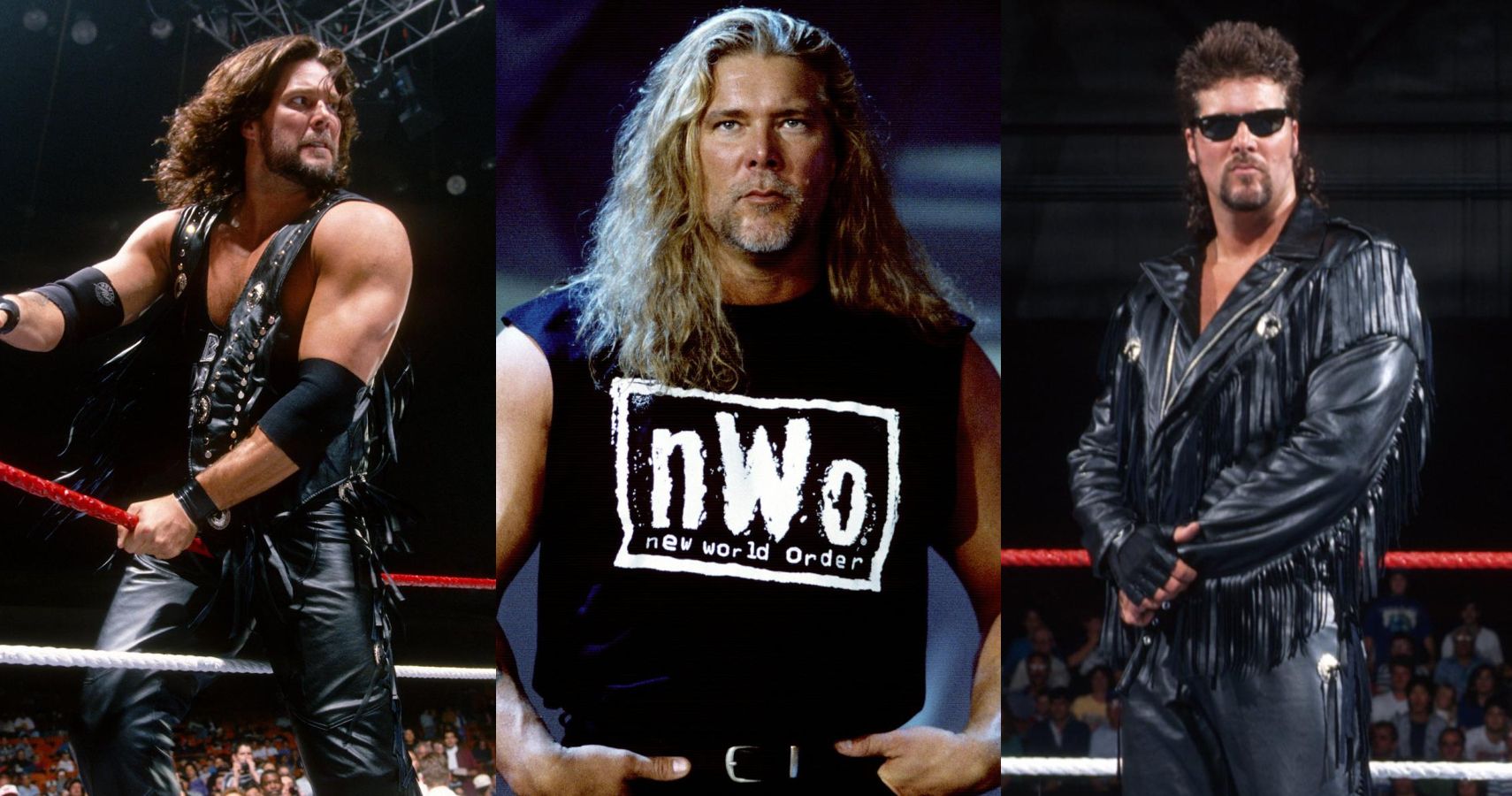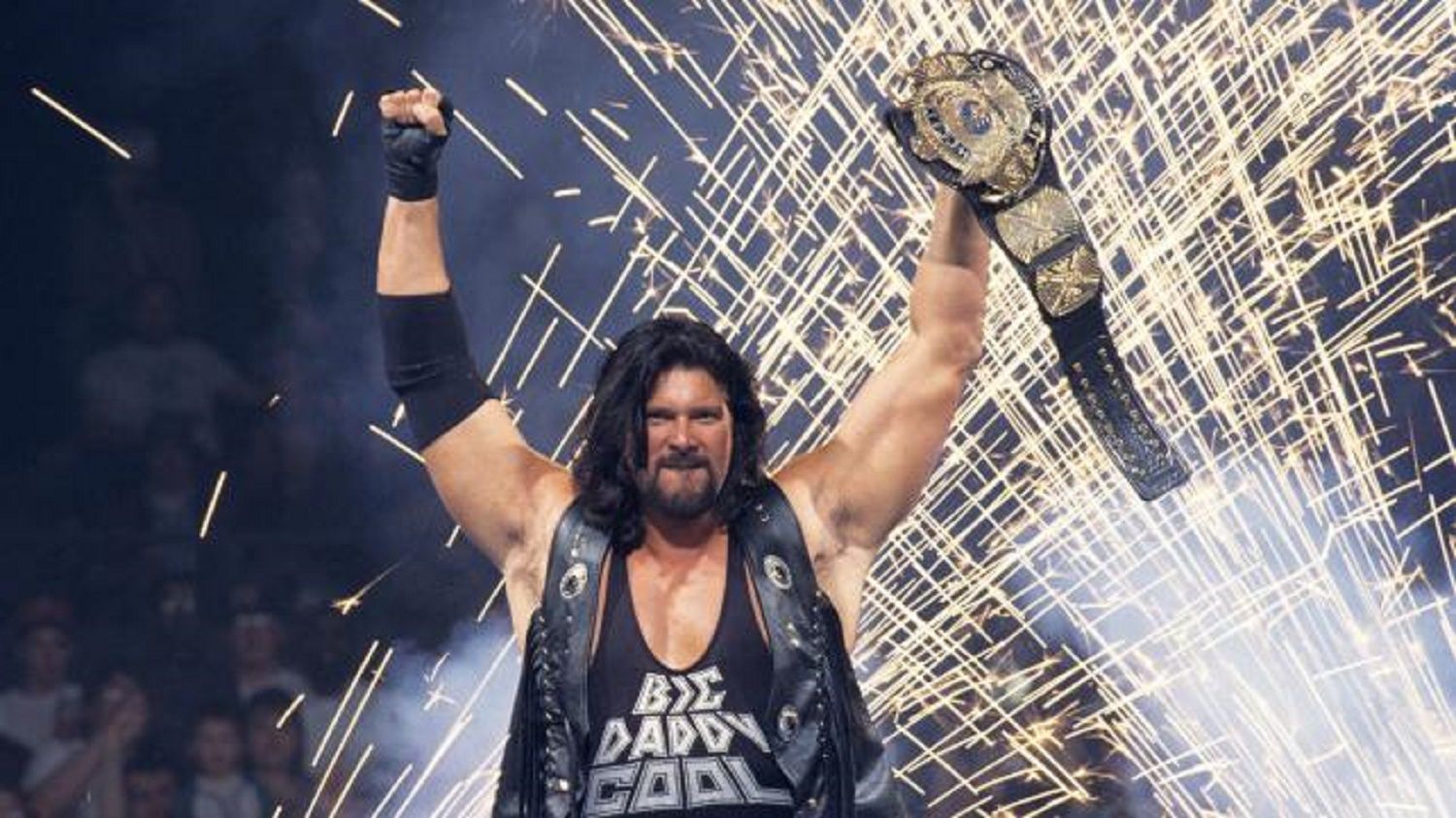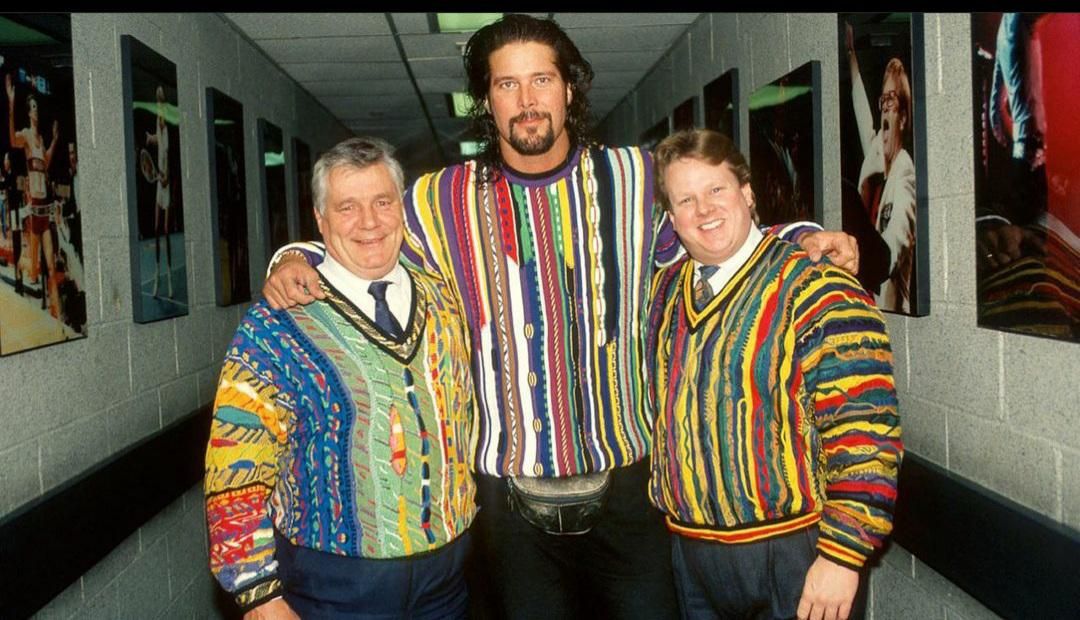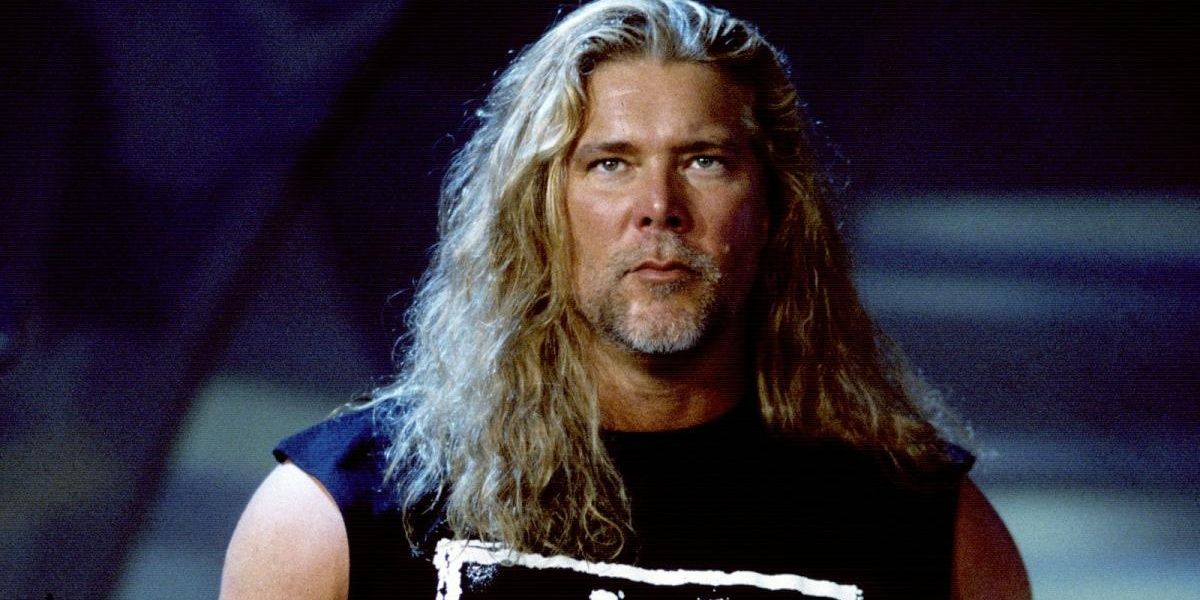1994 was the year WWE Hall Of Famer Diesel -- aka Kevin Nash -- became the first man to capture the Intercontinental Championship, the WWF Tag Team Championship, and the WWF Championship in the same year. It was a wild year for "Big Daddy Cool" and one that he struggled to replicate in the wake of his departure from the company in 1996 ... which wasn't necessarily a bad thing.
Diesel, WWF Champion
It's important to point out that 1994 was Nash's most successful year purely in terms of kayfabe accolades. Business may have been down while Nash was on top, but he added a lot of accomplishments to his resume that year, and nobody can take that away from him. By contrast, the situation was reversed during his WCW tenure. Nash put a lot of butts in seats for WCW in 1996 and the early NWO days, but he was smart enough to ensure he was being compensated accordingly.
There are a multitude of complex reasons for why Kevin Nash was unable to recapture his glory days. For a long time the general consensus among wrestling fans was that he was his own worst enemy. Not because he lacked confidence, but because he had too much of it. Nash is often accused of phoning it in, and while it's true that there were times when he was a lot less engaged than he should've been, you simply have to admire his swagger. Kevin Nash never recaptured his glory days because he didn't want to. He was happy if he was getting paid. And he was most certainly getting paid.
Unlike many of his peers and modern-day counterparts, Kevin Nash seldom -- if ever -- attempted to achieve more than what he thought he was capable of. As a result it's easy to look back on his career and sneer. But more so than any other wrestler in history (with the possible exception of CM Punk), Kevin Nash is someone who sees the business of professional wrestling for what it truly is. He's one of the few wrestlers to take control of his own destiny on more than one occasion by prioritizing his own well-being over a misplaced sense of company loyalty.
Nash's decision to jump ship from WWE to WCW in 1996 wasn't solely financially motivated. Sure, WCW offered more more money, but they also offered him a more flexible schedule. By accepting the offer, Nash set an example to his peers that it's possible to make bags of money on your own terms in an industry where very few people did.
"Big Daddy Cool" Put In The Effort When It Mattered
On paper, the crescendo of Kevin Nash's career occurred when he won the WWF Championship for the first time by defeating pro-wrestling legend Bob Backlund at a Madison Square Garden house show in 1994. This was the crowning moment of the artist then known as Diesel. The company was putting its faith in him and setting him up to be their number one guy moving forward. But his bank account told a very different story. After he left WWE, he didn't need to be a top guy to be a top earner. Kev knew his own worth, but he also saw the value in moderation.
Nash had debuted in WWE as the cocky heel bodyguard of a cocky heel Shawn Michaels. By the time he won the WWF Championship, he was a babyface who was struggling to connect with the audience on a consistent basis, but not through lack of trying. Many look back on this period of WWE history as a failure. Diesel is often touted as the lowest drawing champion in the company's history, but if you go back and re-watch some of his work from that period, it's clear that Nash is working his boots off to be a worthy champion. What has often been interpreted by some fans and critics as laziness is, in fact, an acute understanding of his own limits as a performer.
That being said, when he was called upon to make an impact, he made one hell of an impact. He showed up in WCW, formed the NWO with Scott Hall and Hulk Hogan, and changed the business for the better. Nash and Hall jumping ship was historic, but their work in WCW also forced WWE to shift into a new gear. In a way, Kevin Nash made more money for WWE after he left than he did when he was there.
"He inherited the championship at a time when the business was at a low point and there wasn’t an awful lot for him to work with from that point moving ahead," Bruce Prichard said of Nash's WWF title reign on an episode of his Something To Wrestle With podcast in 2020. "And I think that as time went on, Diesel did become a draw and he did get into a position where, yes, he did draw money and obviously did well enough that he was able to parlay that into a hell of a deal at WCW," he added.
Kevin Nash Knew What He Was Worth
When Vince McMahon purchased WCW in 2001, Kevin Nash decided no to return to his old stomping ground. He still had time left on his WCW contract, but was willing to listen to offers from WWE.
"I had 14 months left when [Vince McMahon] bought [WCW]," Nash said in a shoot interview long after the period in question. According to Nash, he stood to make $2 million from those remaining months on his contract. He says WWE offered him a $1 million guarantee on top of half of the value of his existing contract. "I said 'let me get this right, I can sit at home and make all my money, or I can give it back and go back to work and make the same amount?'," Nash continued. "How about I just stay at home and get it all?"
Kevin Nash not only knew his value, but he knew his limits. He decided to leave WWE while he was one of its top stars. He went on to become a top star in WCW, and revolutionized the industry in the process. You don't have to be a fan of his work to appreciate the fact that Kevin Nash is the smartest man in the history of professional wrestling.




